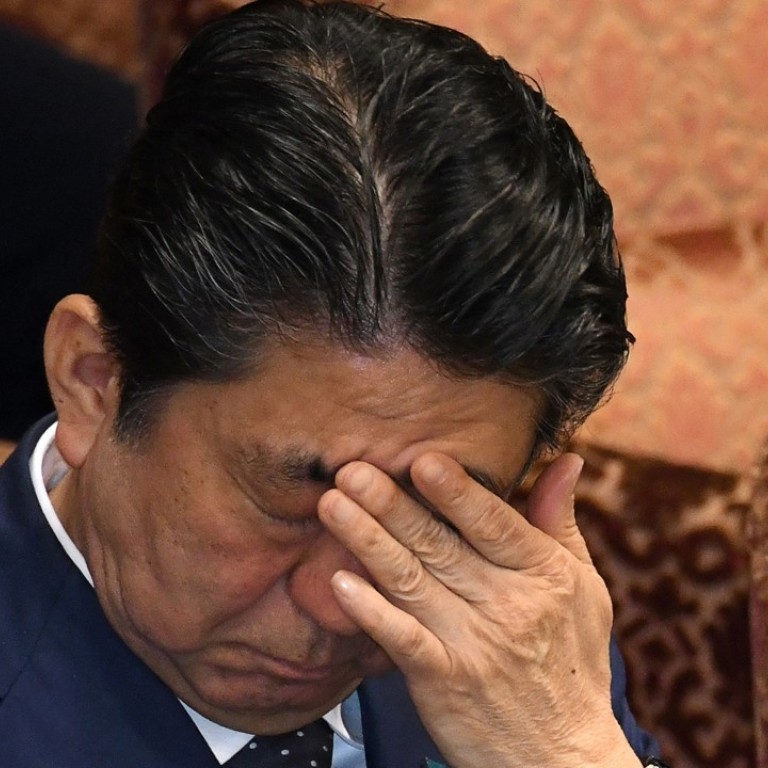
Support for Abe’s cabinet slips below 40 per cent amid cronyism scandal
Prime minister’s numbers dropping as calls for him and his cabinet to resign grow louder over controversial land sale and apparent cover-up attempt
The approval rating for Prime Minister Shinzo Abe’s cabinet has plunged below 40 per cent and fallen behind the disapproval rate, amid a deepening scandal linked to cronyism allegations levelled against Abe over a state-owned land sale, a Kyodo News poll showed Sunday.
The support rate stood at 38.7 per cent, down 9.4 percentage points from the previous survey conducted before the Finance Ministry admitted to document tampering linked to the cronyism allegations.
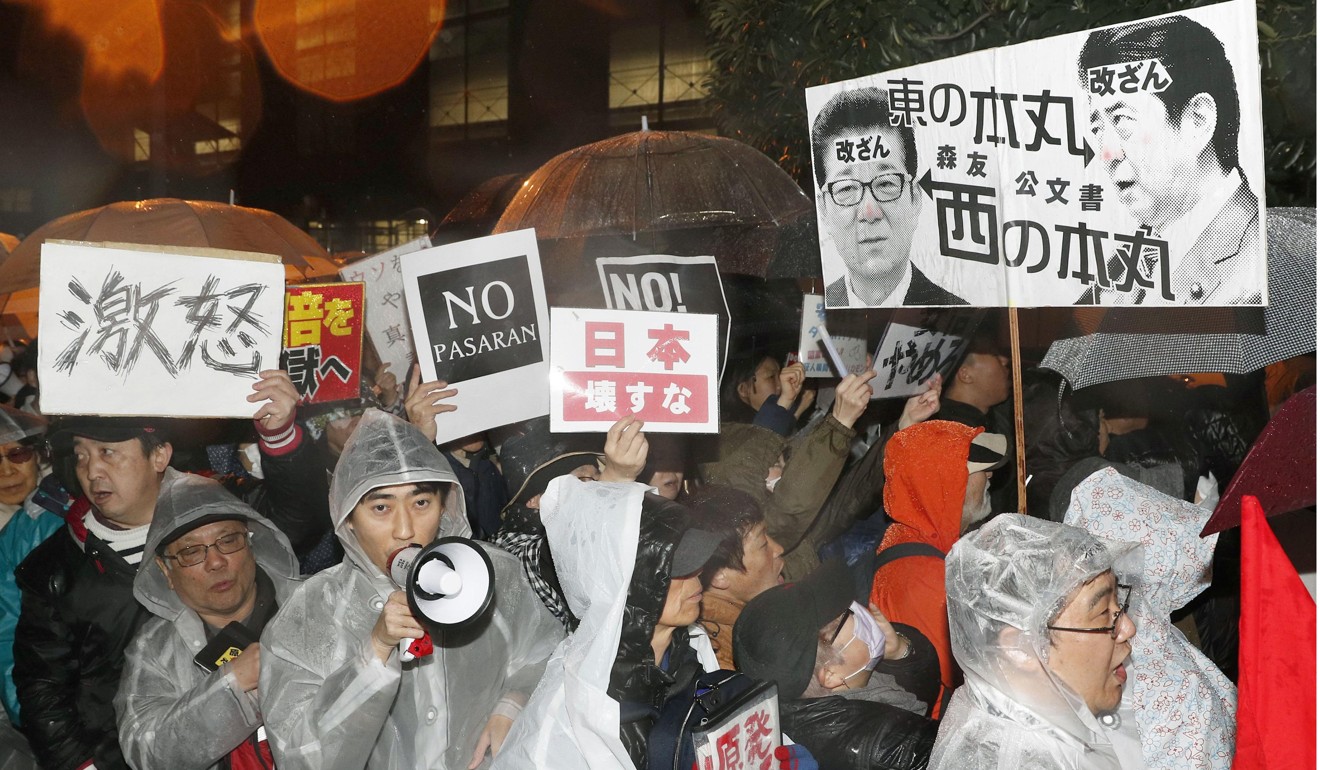
A total of 66.1 per cent said Abe bears responsibility for the document alteration, while those who thought otherwise stood at 25.8 per cent.
But 47.6 per cent said Abe does not need to resign over the issue, while 43.8 per cent said he should step down.
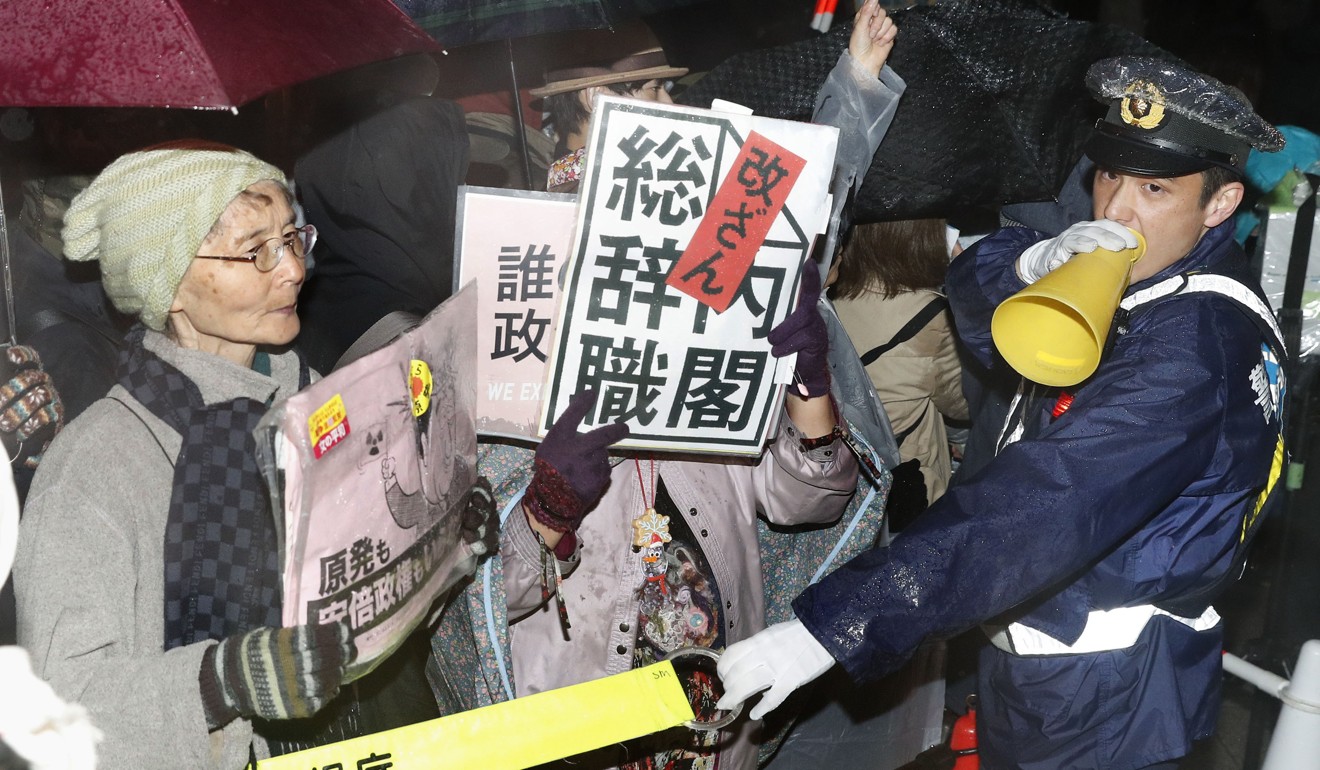
The latest nationwide telephone survey was conducted on Saturday and Sunday, about a week after the Finance Ministry admitted that its bureaucrats doctored documents on the cut-price state land sale in 2016, including by removing references to Abe and his wife.
The revelation has fuelled suspicion that the documents were altered to cover up alleged cronyism.
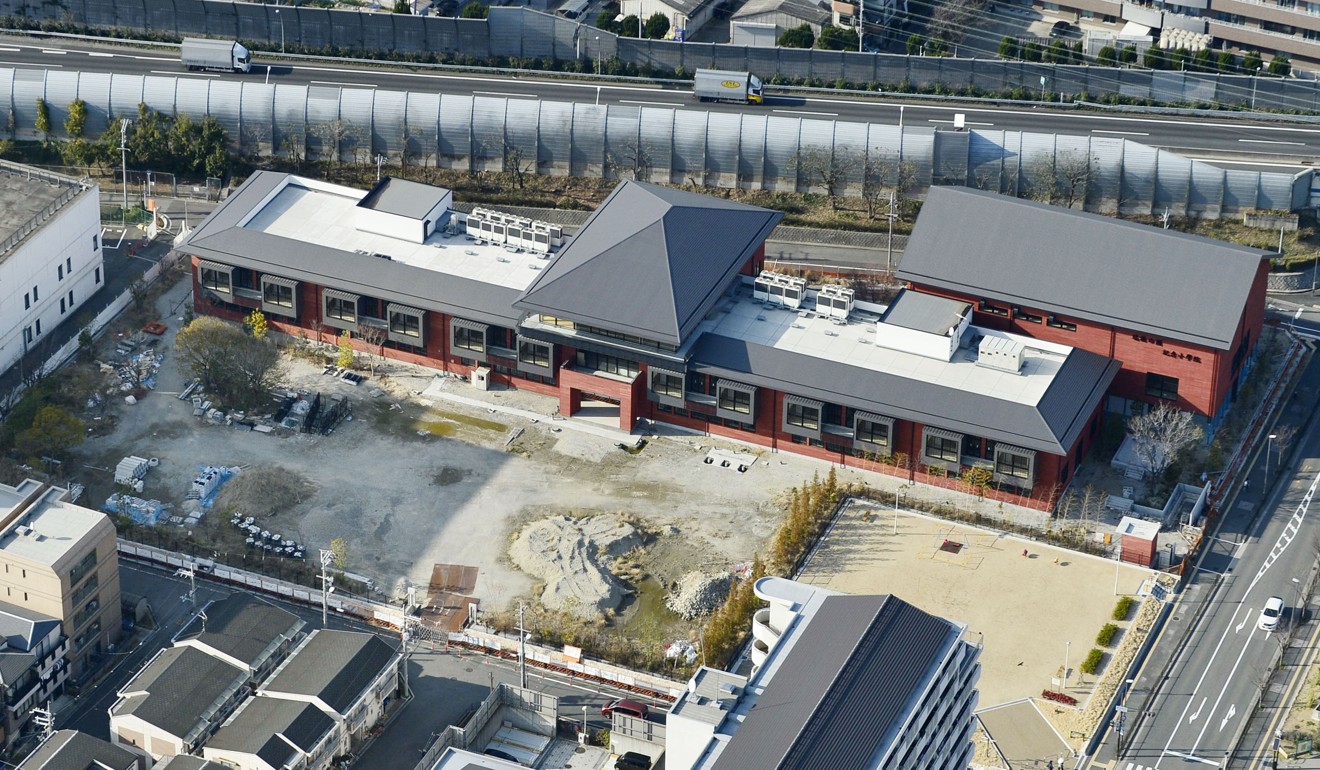
Abe said after the allegations first emerged in February last year that he would resign if he and his wife were found to have played a role in the land sale discount of about 800 million yen (US$7.5 million).
Abe has denied ordering the rewrite of the documents, but the scandal is apparently feeding public mistrust. The disapproval rate for the Abe cabinet stood at 48.2 per cent, up 9.2 percentage points from the previous survey conducted on March 3 and 4.
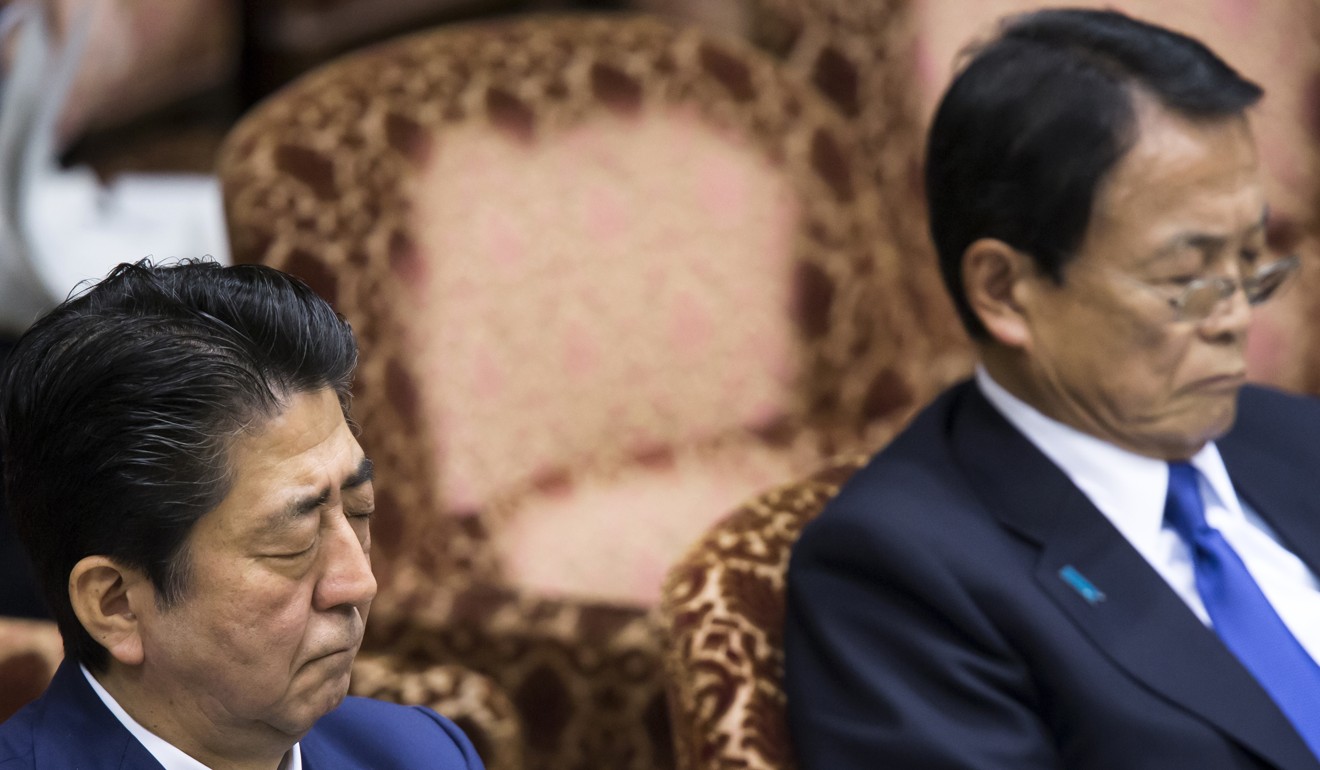
The respondents were divided over whether Finance Minister Taro Aso, a key ally of Abe, should resign over the alteration of the official documents, with 52.0 per cent in favour of his resignation and 40.4 per cent opposed.
A total of 65.3 per cent said Abe’s wife Akie should be summoned by the Diet to testify, compared with 29.0 per cent who said it was unnecessary.
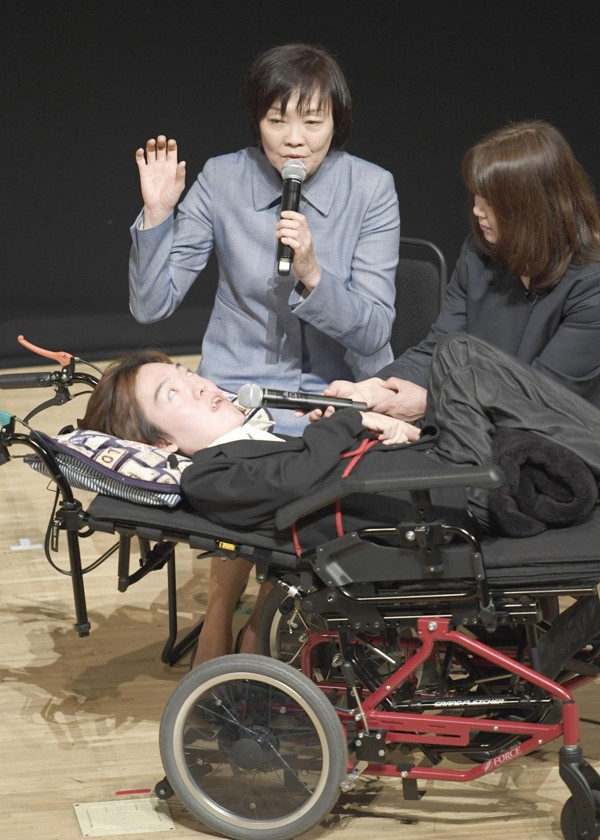
Since Abe commenced his second stint as prime minister in 2012, the lowest support rating recorded was 35.8 per cent in July last year, when the government was reeling from a series of scandals, including the cronyism accusations that resurfaced recently.
Asked who should be elected in the next ruling Liberal Democratic Party presidential election in September, Abe was dislodged from top spot by Shigeru Ishiba, a veteran lawmaker and former defence minister.
Ishiba was supported by 25.4 per cent of respondents, followed by Shinjiro Koizumi, a rising star in the LDP and a son of charismatic former prime minister Junichiro Koizumi. Abe fell to third from first place in a February survey, securing 21.7 per cent of support.
With the LDP working to draw up a revision proposal for the war-renouncing Article 9 of the constitution, 39.1 per cent expressed support for a change suggested by Abe to add an explicit reference to the country’s defence forces, while 47 per cent expressed opposition.
More than 50 per cent expressed opposition to constitutional revision while Abe is serving as prime minister, while 36.0 per cent expressed support.
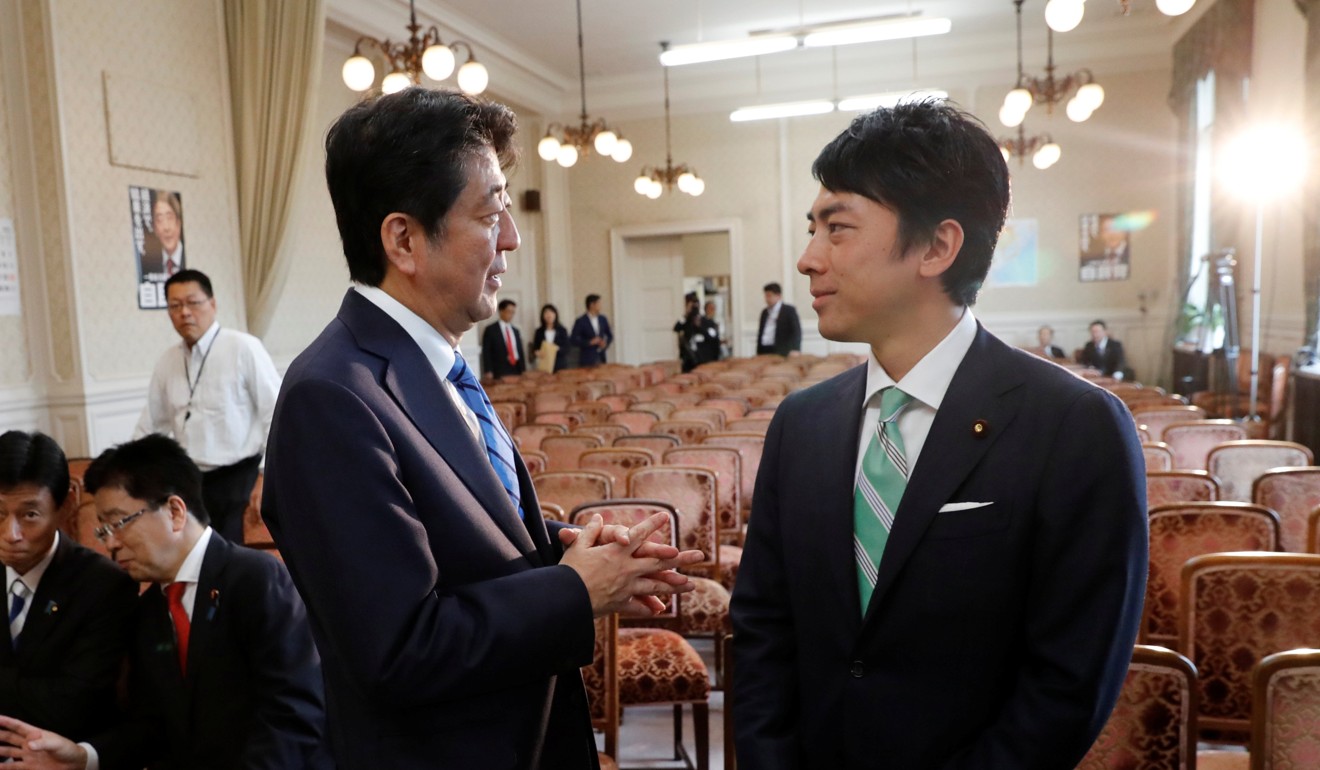
Abe, a conservative politician, has been eager to achieve the first-ever amendment of the constitution, drafted by the US-led occupation forces following Japan’s defeat in the second world war.
By party, the LDP remained dominant with 36.2 per cent backing, but it was down 3.3 percentage points from the previous survey.
The support rating for the Constitutional Democratic Party of Japan, the largest opposition force in the House of Representatives, edged up 0.4 percentage point to 11.5 per cent.
The survey, covering 736 randomly selected households with eligible voters as well as 1,148 mobile phone numbers, obtained responses from 505 and 509 people, respectively.

